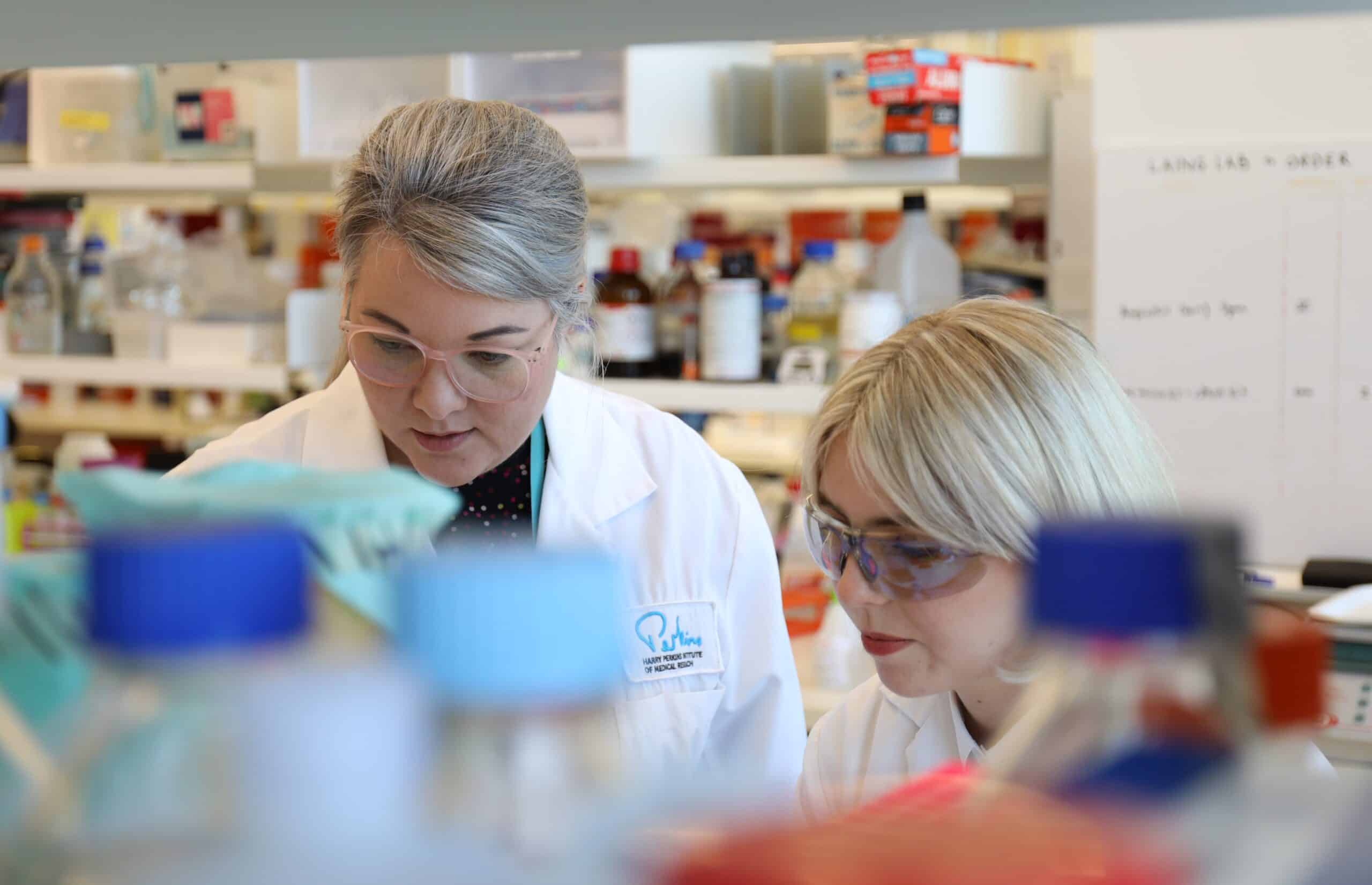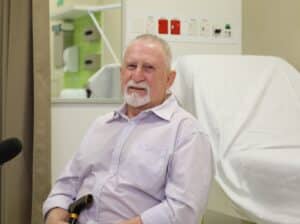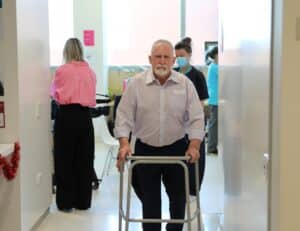
Disease-causing genetic mutation finding to impact thousands of patients world-wide
The genetic cause of a brain disease that leads to vertigo, speech difficulties and loss of coordination, and which can leave patients dependent on wheelchairs, has evaded scientists for decades.
However, geneticists from Canada, the USA, Germany, India and Australia have found a genetic link that explains a large percentage of the undiagnosed adult-onset neurodegenerative disease, Cerebellar Ataxia.
The mutation, which is similar to the type that triggers Huntington’s disease, causes a significant proportion of currently unsolved adult-onset ataxia, a term that describes poor muscle control.
The Perth team involved in the international collaboration was led by Associate Professor Gina Ravenscroft at the Harry Perkins Institute of Medical Research (the Perkins).
“This discovery will likely lead to an accurate genetic diagnosis for many patients and families who do not know what is causing their challenging, life affecting symptoms. It is also likely other genetically undiagnosed ataxia patients will have other, yet to be found, similar mutations,” she said.
Clinical lead in the research, Professor Phillipa Lamont at Royal Perth Hospital says patients long to know what it is they are suffering from.
“Finding the cause of a patient’s disease is very important for several reasons. An accurate diagnosis gives the patient an assurance that some more treatable cause is not being missed.
“They also can be advised what the future may hold for them and make plans. It allows them to have reproductive choices if they are of child-bearing age, and although there is no treatment for this condition at the moment, all the treatments we have for other genetic diseases that are emerging rely completely on knowing exactly what genetic change has caused the disease,” Professor Lamont said.
Triggers for disease episodes in people with the genetic mutation include alcohol and exercise. For some patients, exercise can temporarily worsen their poor balance and increase their risk of falls.
Patient, Leslie Kelly (69), a trainer in gold processing plants, had to leave the workforce after experiencing falls which fractured his spine and broke his wrist.
“I found it very hard to settle into retirement at a young age, but I couldn’t get work, no insurer would insure me because of my loss of balance,” he said.
Professor Lamont says, “Patients with this newly found mutation can have symptoms triggered by just walking quickly over short distances. Over time these symptoms become permanent. Most ataxic patients also find alcohol worsens their symptoms, and as the same brain cells are attacked by both the alcohol and the genetic defect, it is important to avoid alcohol.
“This discovery will help thousands of patients world-wide to finally receive an accurate diagnosis of their condition and help them to modify their lifestyle as much as they can”.
Professor Nigel Laing AO, Head of Preventive Genetics at the Perkins, said new computer programs and DNA sequencing technology helped enable the discovery.
“Bioinformatics tools and long-read DNA sequencing, which have only been available for a relatively short time meant the international team could analyse patient samples from around the world and find a genetic link for the debilitating condition,” he said.

Les Kelly (69) suffered symptoms for many years before finding out about the disease causing his suffering.
Meet Les
Leslie Kelly (Les), aged 69, worked in gold processing plants as a trainer in Papua New Guinea and Tanzania when he started to notice he was walking strangely, as if he were drunk. He would sometimes wander sideways on a slightly angled footpath and stumble. Occasionally he even walked into walls.
His legs ached and he couldn’t judge distances.
These symptoms began in 2002 and worsened over time.
At first his loss of balance just resulted in his workmates laughing at him and saying he looked spastic. Les was embarrassed by his increasingly robotic uncoordinated walk.
“People thought I was drunk. I had no idea what was happening to me.”
Les saw numerous neurologists who said he had some form of ataxia, a condition where patients can’t control their muscles.
His symptoms continued to worsen. Swallowing became an issue and he often choked when he ate which made going to restaurants embarrassing.
In 2010 Les saw Professor Phillipa Lamont, head of the Neurogenetic Unit at the Royal Perth Hospital. An MRI confirmed Les’ brain had shrunk from a condition called cerebellar ataxia.
She said the announcement that the genetic mutation that caused Les’s condition had been discovered was critical for any hope of treatments or even of a cure in future.
“Although there is no treatment for this condition at the moment, all the treatments we have for other genetic diseases that are emerging rely completely on knowing exactly what genetic change has caused the disease,” Professor Lamont said.
For Les, the condition meant he had to leave work, several years earlier than retirement age.
“Stopping work early felt like you’re nothing anymore. There’s no sense of achievement. I felt useless.”

Les often relies on a walking aid to get around
Professor Lamont says, “because the symptoms of cerebellar ataxia are just the same as being drunk, people are often assumed wrongly to be drunk, and judged and turned away from licensed venues and there is always the concern of what if this keeps on getting worse and worse? Will I end up in a wheelchair? Will I have to have a feeding tube instead of swallowing?”
While not yet in a wheelchair, in recent years Les has had several serious falls — one which fractured his spine, another broke his wrist. He now walks with a stick and often uses a Zimmer frame.
Although there’s little that can be done to alleviate Les’ symptoms, Professor Lamont says the discovery of the disease gene is a breakthrough that will help patients, particularly if they are young and planning a family as it gives them reproductive choices.
She says future treatments can only come once the disease gene has been found.
Read the published article here: Deep Intronic FGF14 GAA Repeat Expansion in Late-Onset Cerebellar Ataxia
(You may require a subscription to access this link.)
